
BookNook
Hover over titles for descriptions & click to buy.


A New York Times bestseller—with more than one million copies sold!
If you grew up with an emotionally immature, unavailable, or selfish parent, you may have lingering feelings of anger, loneliness, betrayal, or abandonment. You may recall your childhood as a time when your emotional needs were not met, when your feelings were dismissed, or when you took on adult levels of responsibility in an effort to compensate for your parent’s behavior. These wounds can be healed, and you can move forward in your life.
In this breakthrough book, clinical psychologist Lindsay Gibson exposes the destructive nature of parents who are emotionally immature or unavailable. You will see how these parents create a sense of neglect, and discover ways to heal from the pain and confusion caused by your childhood. By freeing yourself from your parents’ emotional immaturity, you can recover your true nature, control how you react to them, and avoid disappointment. Finally, you’ll learn how to create positive, new relationships so you can build a better life.
Discover the four types of difficult parents:
The emotional parent instills feelings of instability and anxiety
The driven parent stays busy trying to perfect everything and everyone
The passive parent avoids dealing with anything upsetting
The rejecting parent is withdrawn, dismissive, and derogatory
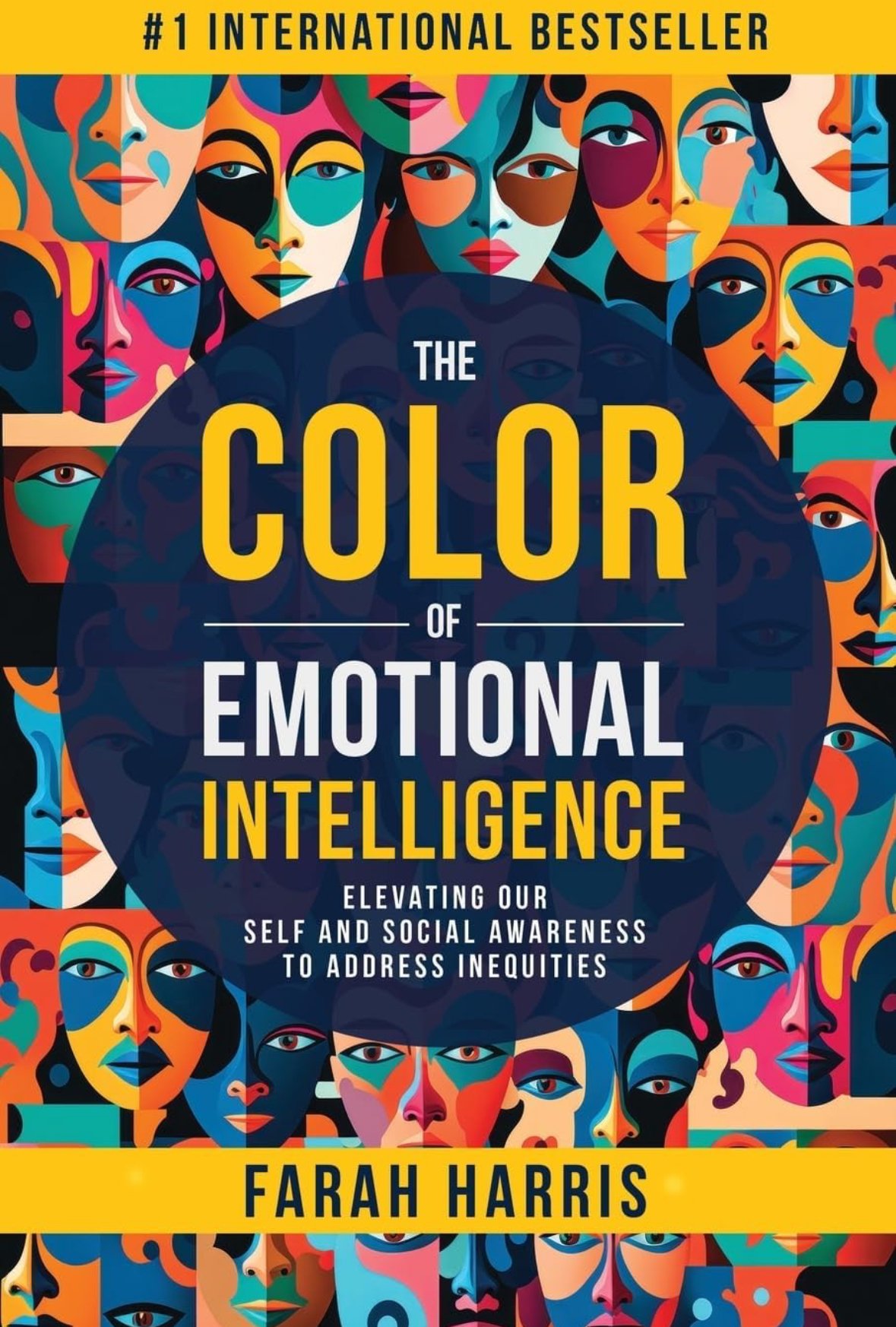
It takes strength not to curse someone out when they’re being rude, or not to lose it when your child is being disobedient. It is also emotionally taxing to keep it all together when you are on the receiving end of a microaggression.
Each of these instances requires us to use our emotional intelligence (or EQ). And, while it is a basic skill, there are more shades to emotional intelligence than you might think. Emotional intelligence can also be used to break barriers to equity.
In The Color of Emotional Intelligence, psychotherapist and well-being expert Farah Harris uses personal stories, anecdotes, and insight to discuss:
The fundamentals of emotional intelligence and barriers to practicing EQ effectively
How emotional intelligence is used as a survival skill by marginalized people
Different types of stressors, including microaggressions, and resulting unhealthy defensive tactics, such as code-switching and masking
Self-care strategies for handling systemic stressors that affect people from marginalized groups
Tools everyone can use to elevate their emotional intelligence to address inequities and become better stewards of humanity
Don’t go through life seeing things in black and white. It’s time to see the world in color.
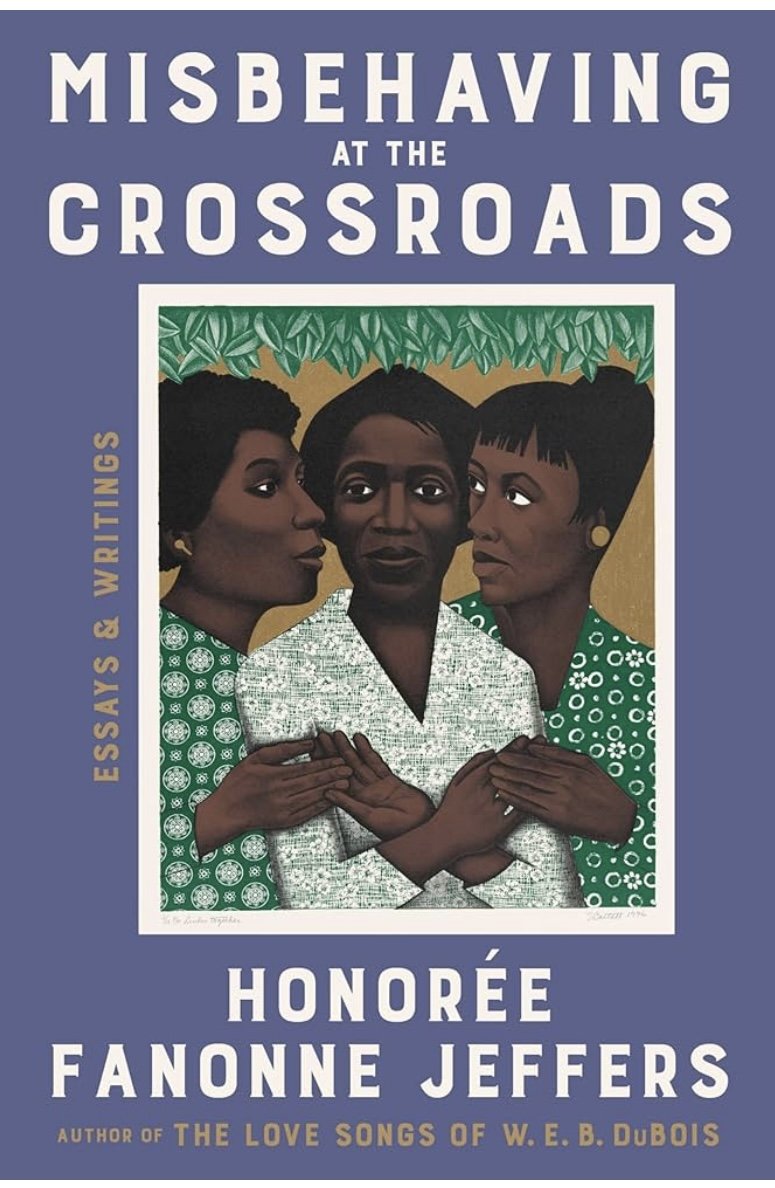
The New York Times-bestselling, National Book Award-nominated author of The Love Songs of W.E.B. Du Bois and The Age of Phillis makes her nonfiction debut with this personal and thought-provoking work that explores the journeys and possibilities of Black women throughout American history and in contemporary times.
Honorée Fanonne Jeffers is at a crossroads.
Traditional African/Black American cultures present the crossroads as a place of simultaneous difficulty and possibility. In contemporary times, Kimberlé Crenshaw coined the phrase “intersectionality” to explain the unique position of Black women in America. In many ways, they are at a third crossroads: attempting to fit into notions of femininity and respectability primarily assigned to White women, while inventing improvisational strategies to combat oppression.
In Misbehaving at the Crossroads, Jeffers explores the emotional and historical tensions in Black women’s public lives and her own private life. She charts voyages of Black girlhood to womanhood and the currents buffeting these journeys, including the difficulties of racially gendered oppression, the challenges of documenting Black women’s ancestry; the adultification of Black girls; the irony of Black female respectability politics; the origins of Womanism/Black feminism; and resistance to White supremacy and patriarchy. As Jeffers shows with empathy and wisdom, naming difficult historical truths represents both Blues and transcendence, a crossroads that speaks.
Necessary and sharply observed, provocative and humane, and full of the insight and brilliance that has characterized her poetry and fiction, Misbehaving at the Crossroads illustrates the life of one extraordinary Black woman—and her extraordinary foremothers.
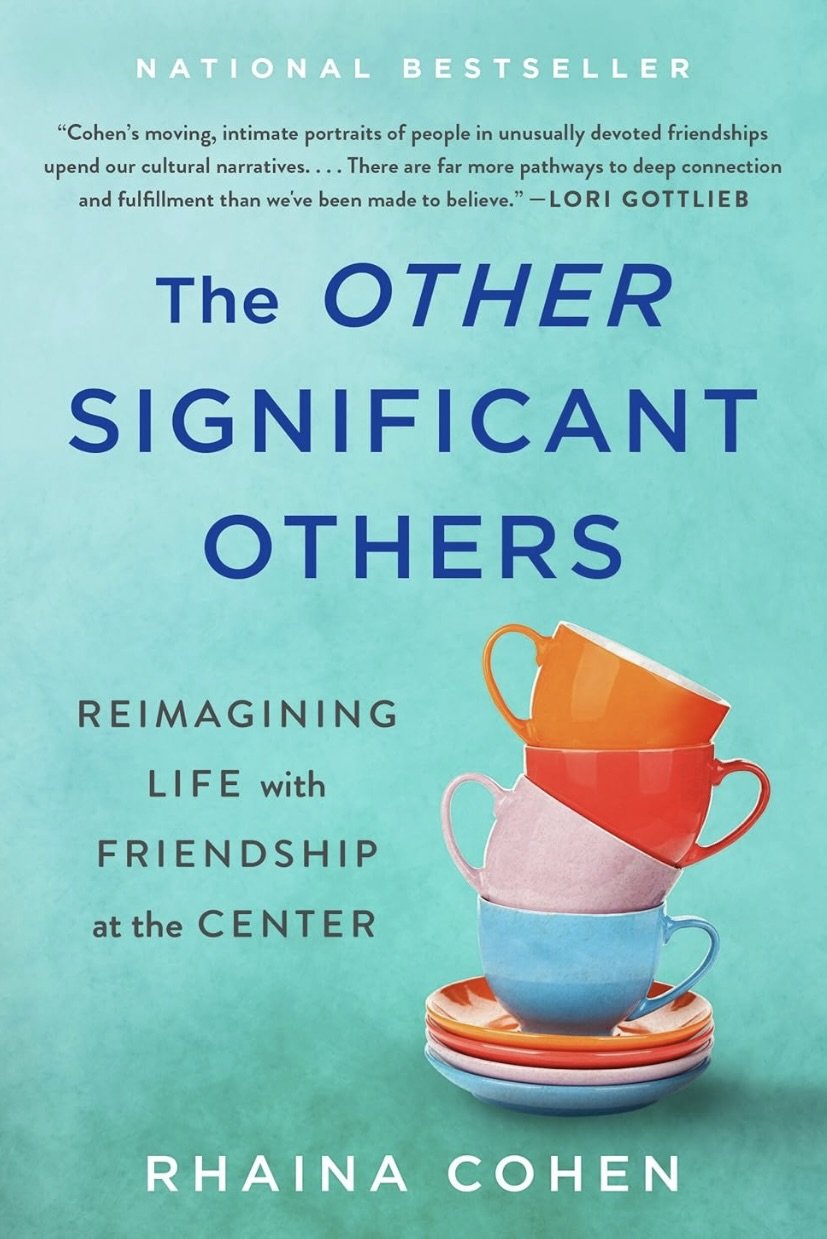
NATIONAL BESTSELLER
“I feel like I’ve been waiting for this book for my entire adult life.” — Anne Helen Petersen
“I loved [The Other Significant Others] and recommend it to everybody.” — Ezra Klein
The Other Significant Others tells the stories of people who make a friendship the central relationship in their lives—owning homes together, raising kids together, or caring for each other for decades. Like romantic couples, these friends form a “we.” At a time of declining marriage rates and a loneliness epidemic, these friends help us imagine alternative models for a fulfilling life and ask us to rethink which relationships matter most.
You can get The Other Significant Others from your favorite bookseller now and find a discussion group guide here.
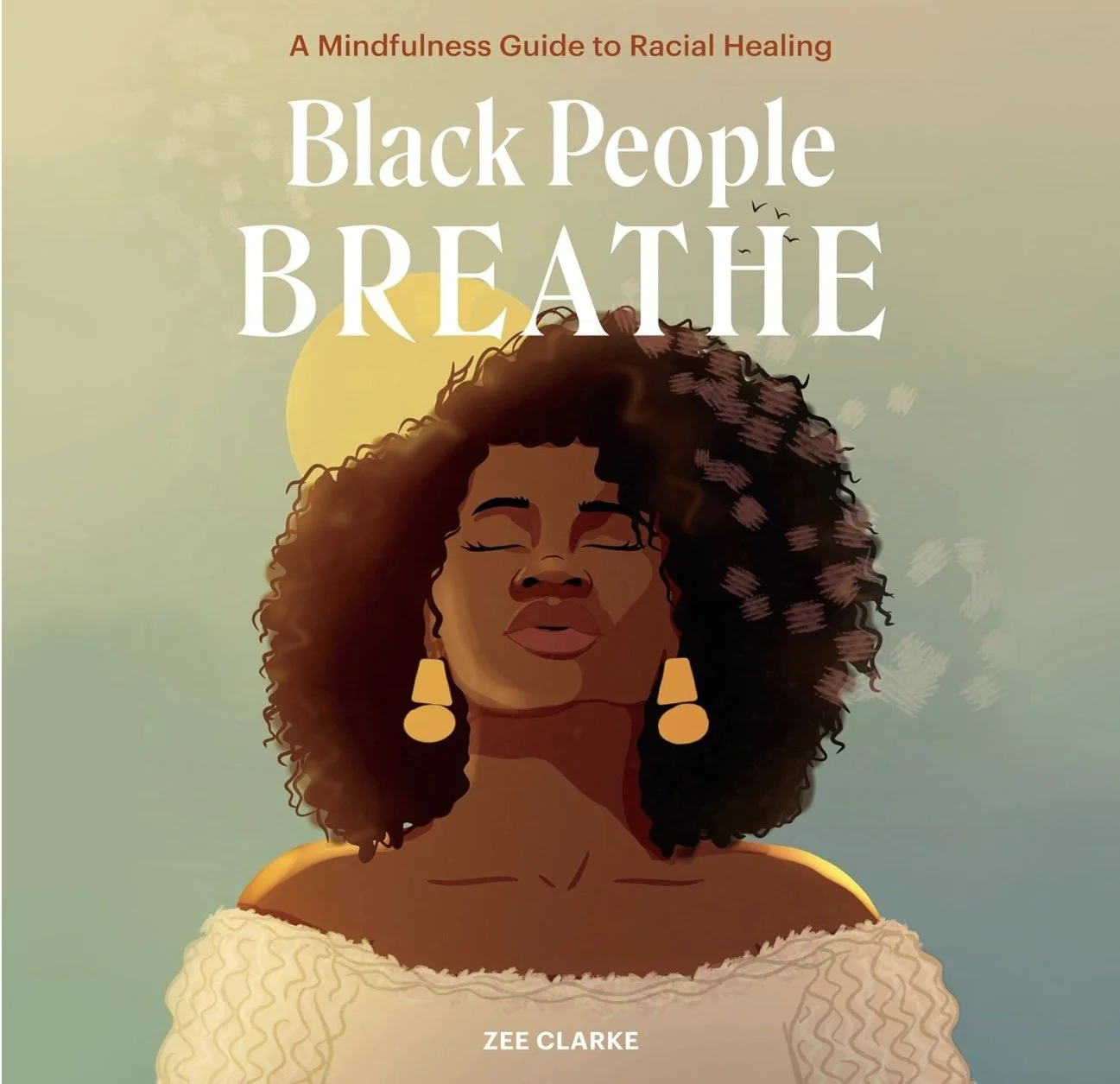
A thoughtful, inclusive, and vividly illustrated guide to help Black people—and all people of color—heal from racial trauma using vital tools from an expert in mindfulness, meditation, and breathwork.
It is your right to survive. It is your right to thrive. Mindfulness and breathwork will help you do just that.
Racism is more than just an interpersonal experience. It is a systemic injustice that affects the lives of Black people, and all people of color, in countless ways. Doctors and psychologists have discovered the wide-ranging—and often devastating—effects of racism on one’s emotional, physical, and mental health, from high blood pressure and heart problems to anxiety and depression. Yet studies show that mindfulness, meditation, and breathwork can significantly reduce these issues. This is where Zee Clarke comes in.
In this powerful book, Clarke draws on her professional expertise and her lived experience as a Black woman to share mindfulness exercises, breathwork practices, and meditative tools centered on healing from and surviving racial trauma. Filled with deeply personal stories highlighting the many systemic challenges that people of color face, this mixture of guide and memoir offers thirty-three practical techniques based on the emotions elicited from these experiences. Whether you are coping with police brutality, racial profiling, microaggressions, or even imposter syndrome, Black People Breathe gives you the tools to process these complex feelings physically, mentally, and emotionally. Though this collection was created to facilitate healing for communities of color, it also offers allies insight into the discrimination and inequity that these communities face, creating a space for deeper empathy and the inspiration to drive change.
Beautifully designed with gorgeous, vibrant illustrations, Black People Breathe takes a radically inclusive approach to mindfulness, allowing communities of color the opportunity to embark on a journey towards racial healing.
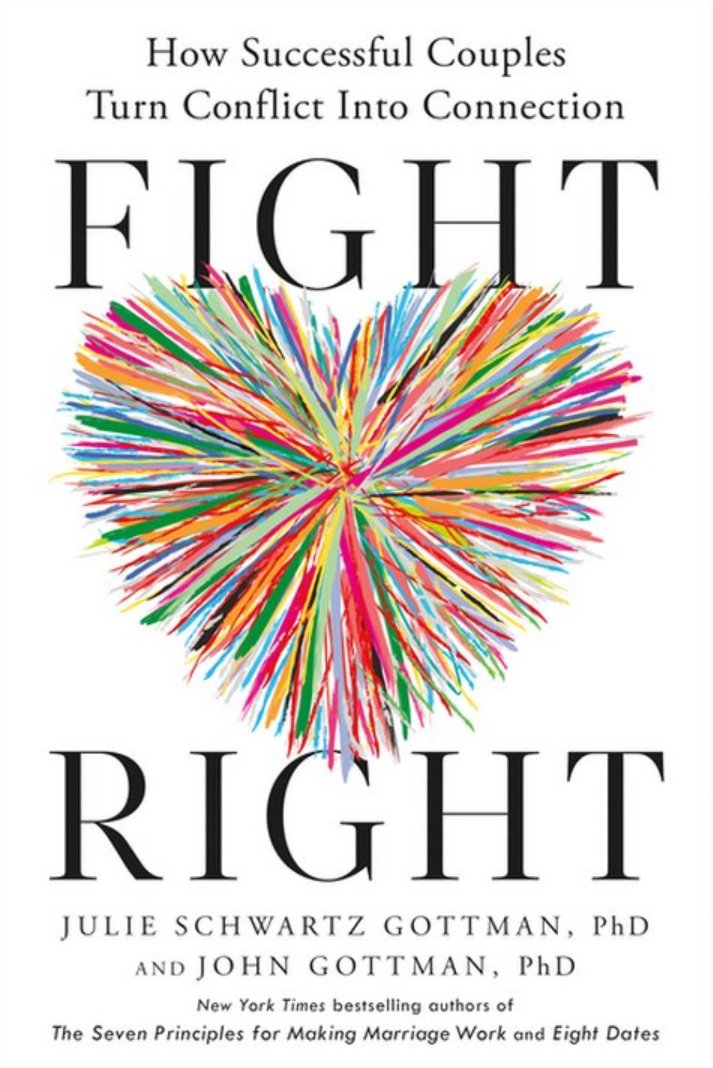
LEARN THE 5 SECRETS OF SUCCESSFUL COUPLES
Conflict is the top reason couples seek help—but it's also an opportunity for greater intimacy, deeper connection, and lasting love according to this essential guide from the world’s leading relationship scientists and bestselling authors of The Seven Principles for Making Marriage Work and Eight Dates
“An indispensable resource that couples will use over and over again.”—Lori Gottlieb, New York Times bestselling author of Maybe You Should Talk to Someone
How we fight predicts the future of our relationships. Most of us blunder into conflict without knowing what we are really fighting about and then quickly become overwhelmed by physiological responses we can’t control and emotions we don’t anticipate. The truth is the happiest and most successful couples fight—all the time. Conflict is human, and necessary.
Through decades of research, Drs. John and Julie Gottman, founders of the world-famous Love Lab, have identified the five common mistakes we make when we are at odds. In Fight Right, we learn the five secrets that help us to get back on track and harness conflict to build stronger, healthier relationships. With kindness, clarity, and a deep understanding of the struggles couples are going through, the Gottmans show us that we each have a unique conflict culture, borne of how we were raised and how we experienced past relationships, and they take us through all the possible combinations, from Avoiders, to Validators, to Volatiles, and how they can best work together.
Fight Right is an essential resource that will help couples escape the win-or-lose mentality in favor of a collaborative approach: calming down, staying connected, and really understanding, so that our fights can bring us closer.
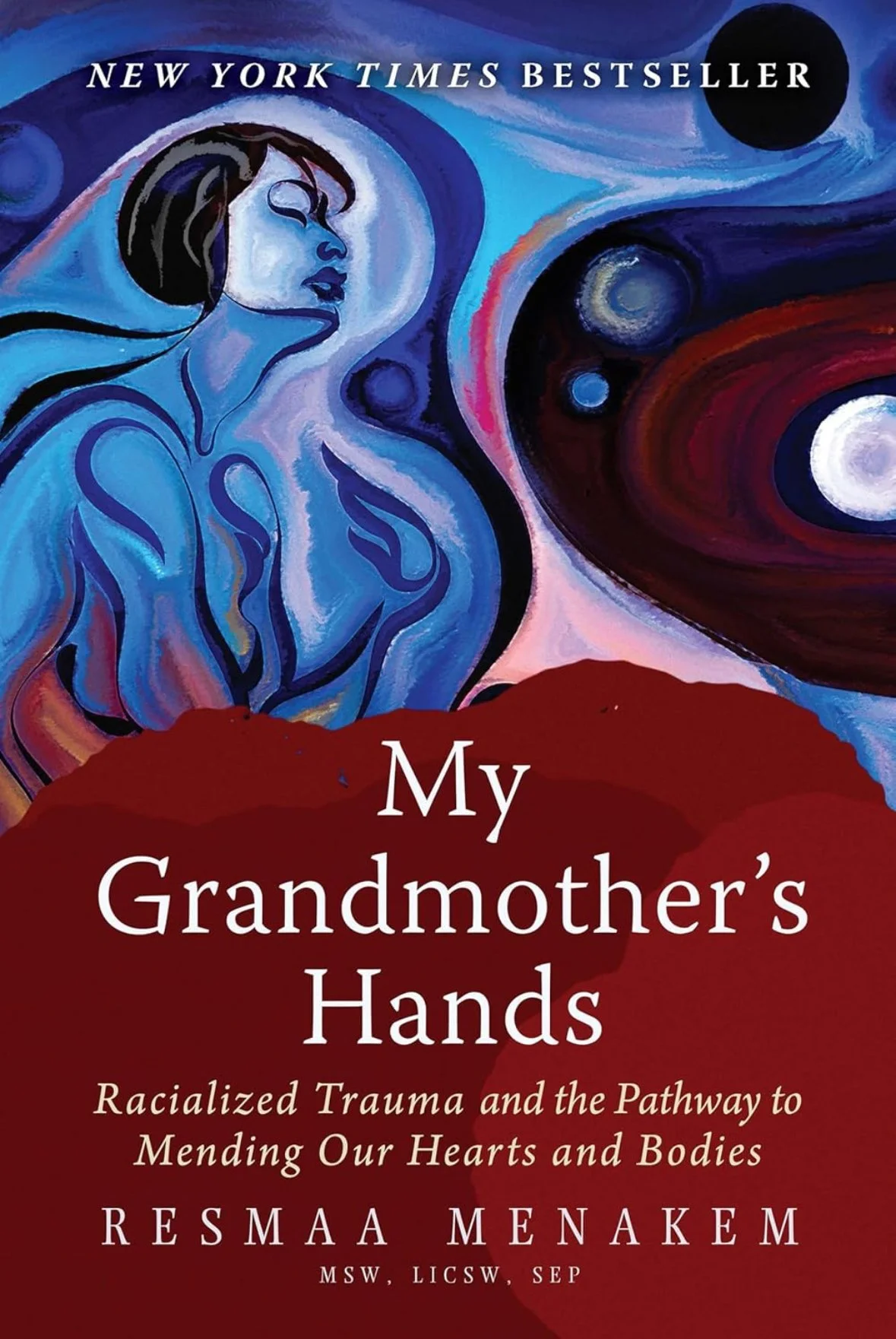
A NATIONAL BESTSELLER
“My Grandmother’s Hands will change the direction of the movement for racial justice.”— Robin DiAngelo, New York Times bestselling author of White Fragility
In this groundbreaking book, therapist Resmaa Menakem examines the damage caused by racism in America from the perspective of trauma and body-centered psychology.
The body is where our instincts reside and where we fight, flee, or freeze, and it endures the trauma inflicted by the ills that plague society. Menakem argues this destruction will continue until Americans learn to heal the generational anguish of white supremacy, which is deeply embedded in all our bodies. Our collective agony doesn’t just affect African Americans. White Americans suffer their own secondary trauma as well. So do blue Americans—our police.
My Grandmother’s Hands is a call to action for all of us to recognize that racism is not only about the head, but about the body, and introduces an alternative view of what we can do to grow beyond our entrenched racialized divide.
Paves the way for a new, body-centered understanding of white supremacy—how it is literally in our blood and our nervous system.
Offers a step-by-step healing process based on the latest neuroscience and somatic healing methods, in addition to incisive social commentary.
Resmaa Menakem, MSW, LICSW, SEP, has appeared on both The Oprah Winfrey Show and Dr. Phil as an expert on conflict and violence. He has served as director of counseling services for the Tubman Family Alliance; as behavioral health director for African American Family Services in Minneapolis; as a domestic violence counselor for Wilder Foundation; as a certified Military and Family Life Consultant for the U.S. Armed Forces; as a trauma consultant for the Minneapolis Public Schools; and as a Cultural Somatics consultant for the Minneapolis Police Department. As a Community Care Counselor, he managed the wellness and counseling services for civilians on fifty-three US military bases in Afghanistan. Resmaa studied and trained at Peter Levine’s Somatic Experiencing Trauma Institute, as well as with Dr. David Schnarch (author of the bestselling Passionate Marriage) and Bessel van der Kolk, MD (author of the bestselling The Body Keeps the Score). He currently teaches workshops on Cultural Somatics for audiences of African Americans, European Americans, and police officers. He is also a therapist in private practice.
Sensitive and probing, this book from therapist Menakem delves into the complex effects of racism and white privilege. Departing from standard academic approaches, he speaks from the wisdom of his grandmother and his own expertise in somatic therapy, a field that emphasizes the mind-body connection—Publisher’s Weekly
An exceptionally thought-provoking and important account that looks at race in a radical new way. For all readers—Library Journal (starred review)
An extremely interesting approach and a much-needed paradigm shift in the treatment of racialized trauma.—NY Journal of Books
Though the highly-charged subject-matter might ordinarily be controversial in nature, this text is written in a non-confrontational style apt to disarm, engage and enlighten readers, regardless of color or political persuasion. Kudos to Resmaa Menakem for such a sorely-needed seminal work which couldn’t be more practical or more timely, given this bitterly-divided country’s current state of race relations.—The Harlem Dispatch
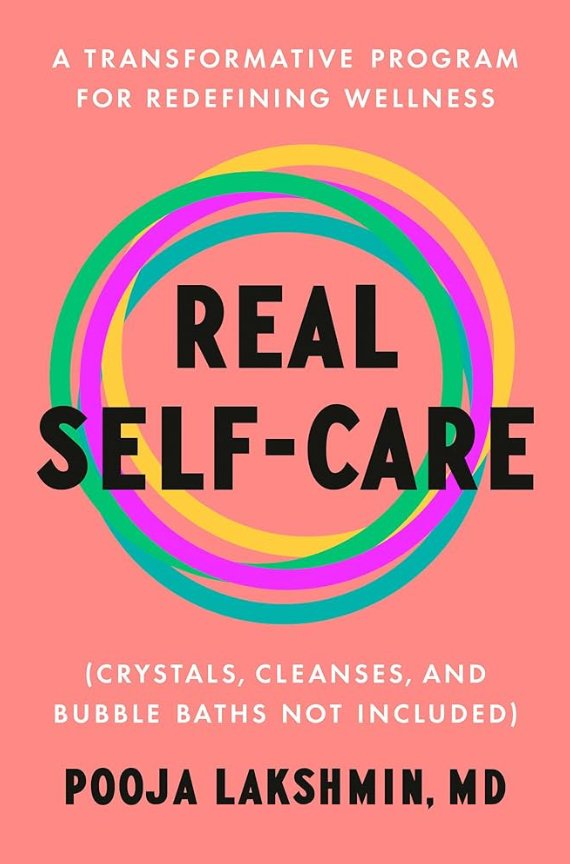
National Bestseller featured by Good Morning America, NPR’s Code Switch, The New York Times, and The Guardian
NPR’s “Books We Love for 2023”
“Realistic and trustworthy” — InStyle
“This isn’t just another self-help book. It gives us a clear-eyed look at the way social systems drain our energy, and a concrete set of principles to rely on as we declare independence from these systems.” —Martha Beck, New York Times bestselling author of The Way of Integrity
“This book is for anyone who’s ever removed a ‘relaxing’ sheet mask only to realize it hasn’t transformed you so much as your trash can.” —Jessica DeFino, The Unpublishable
From women’s mental health specialist and New York Times contributor Pooja Lakshmin, MD, comes a long-overdue reckoning with the contradictions of the wellness industry and a paradigm-shifting program for practicing real self-care that will empower, uplift, and maybe even start a revolution.
You may have noticed that it’s nearly impossible to go even a couple days without coming across the term self-care. A word that encompasses any number of lifestyle choices and products—from juice cleanses to yoga workshops to luxury bamboo sheets—self-care has exploded in our collective consciousness as a panacea for practically all of women’s problems.
Board-certified psychiatrist Dr. Pooja Lakshmin finds this cultural embrace of self-care incomplete at best and manipulative at worst. Fixing your troubles isn’t simple as buying a new day planner or signing up for a meditation class. These faux self-care practices keep us looking outward—comparing ourselves with others or striving for a certain type of perfection. Even worse, they exonerate an oppressive social system that has betrayed women and minorities.
Real self-care, in contrast, is an internal, self-reflective process that involves making difficult decisions in line with our values, and when we practice it, we shift our relationships, our workplaces, and even our broken systems.
In Real Self-Care, Lakshmin helps readers understand what a real practice of caring for yourself could—and does—look like. Using case studies from her practice, clinical research, and the down-to-earth style that she's become known for, Lakshmin provides a step-by-step program for real and sustainable change and solace. Packed with actionable strategies to deal with common problems, Real Self-Care is a complete roadmap for women to set boundaries and move past guilt, treat themselves with compassion, get closer to themselves, and assert their power. The result—having ownership over one’s own life— is nothing less than a personal and social revolution.
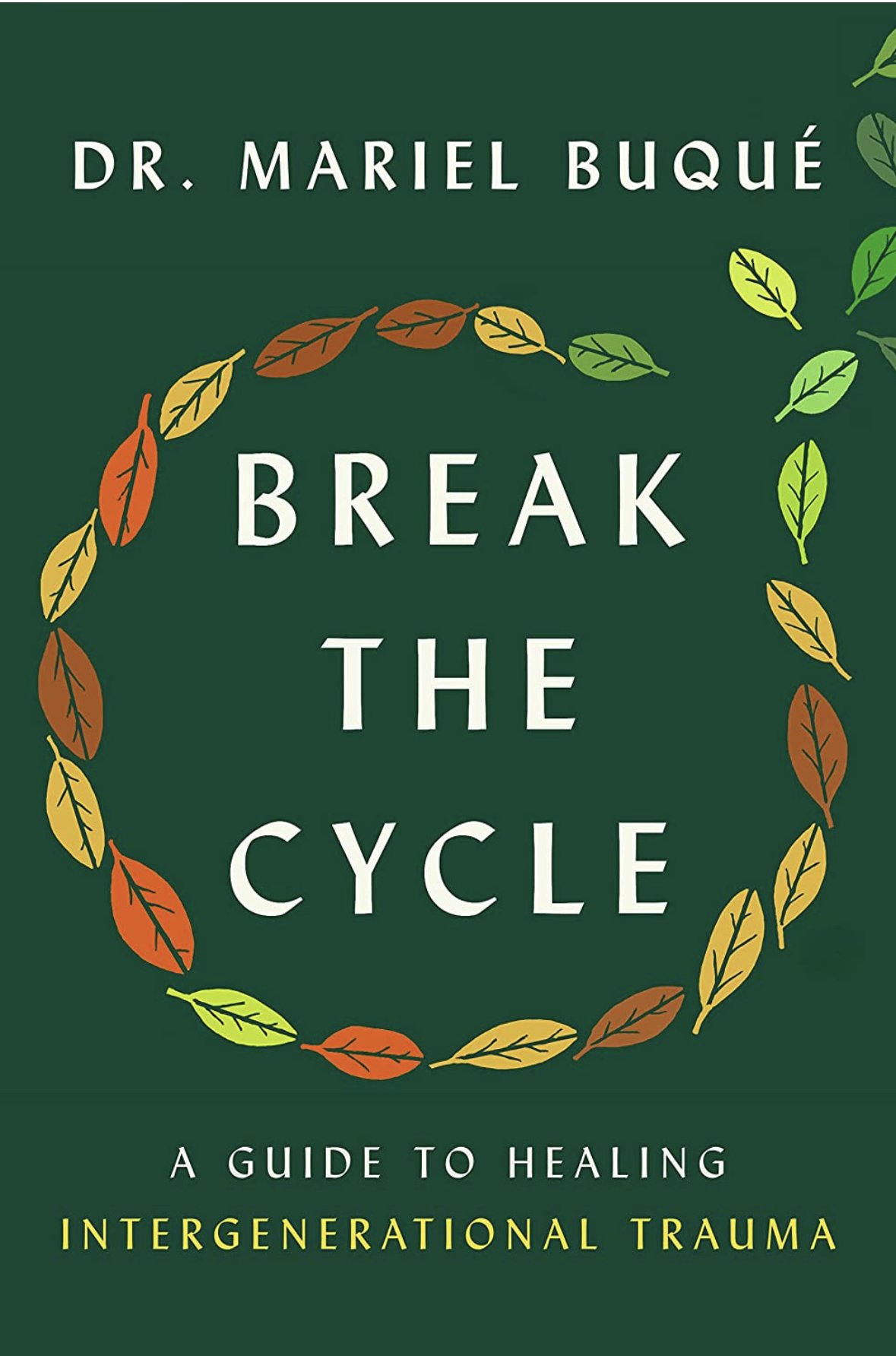
***The Instant National Bestseller***
The definitive, paradigm-shifting guide to healing intergenerational trauma—weaving together scientific research with practical exercises and stories from the therapy room—from Dr. Mariel Buqué, PhD, a Columbia University–trained trauma-informed psychologist and practitioner of holistic healing
From Dr. Mariel Buqué, a leading trauma psychologist, comes this groundbreaking guide to transforming intergenerational pain into intergenerational abundance. With Break the Cycle, she delivers the definitive guide to healing inherited trauma. Weaving together scientific research with practical exercises and stories from the therapy room, Dr. Buqué teaches readers how trauma is transmitted from one generation to the next and how they can break the cycle through tangible therapeutic practices, learning to pass down strength instead of pain to future generations.
When a physical wound is left unhealed, it continues to cause pain and can infect the whole body. When emotions are left unhealed, they similarly cause harm that spreads to other parts of our lives, hurting our family, friends, community members, and others. Eventually, this hurt can injure an entire lineage, metastasizing across years and generations. This is intergenerational trauma.
This trauma is why some of us become estranged from our families, why some of us are people pleasers, why some of us find ourselves in codependent relationships. This trauma can be rooted in the experiences of ancestors, who may have suffered due to unhealthy family dynamics, and it can be collective, the result of a shared experience like systemic oppression, or harmful ingrained behaviors in a culture like the acceptance of physical discipline of children, or even a natural disaster like a pandemic. These wounds are complex, impacting our minds, bodies, and spirits. Healing requires a holistic approach that has so far been absent from the field of psychology. Until now.
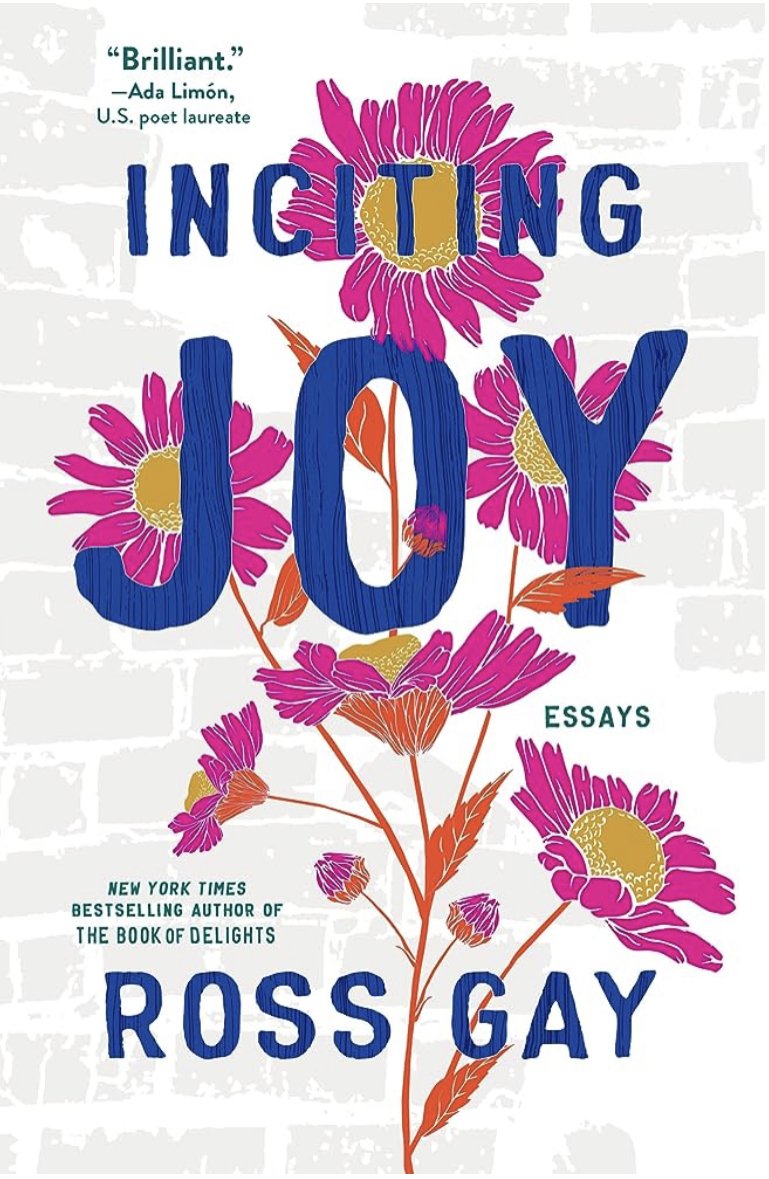
From Ross Gay, the New York Times bestselling author of The Book of Delights, comes an intimate and electrifying collection of essays about the joy that comes from connection. “BRILLIANT.” —Ada Limón, U.S. poet laureate
In these gorgeously written and timely pieces, prizewinning poet and author Gay considers the joy we incite when we care for each other, especially during life’s inevitable hardships. Throughout Inciting Joy, he explores how we can practice recognizing that connection, and also, crucially, how we can expand it.
In “We Kin,” Gay thinks about the garden (especially around August, when the zucchini and tomatoes come in) as a laboratory of mutual aid; in “Share Your Bucket,” he explores skateboarding’s reclamation of public spaces; he considers the costs of masculinity in “Grief Suite”; and in “Through My Tears I Saw,” he recognizes what was healed in caring for his father as he was dying.
In an era when divisive voices take up so much airspace, Inciting Joy offers a vital alternative: What might be possible if we turn our attention to what brings us together, to what we love?
Taking a clear-eyed look at injustice, political polarization, and the destruction of the natural world, Gay shows us how we might resist, how the study of joy might lead us to a wild, unpredictable, transgressive, and unboundaried solidarity. In fact, it just might help us survive.
“A gift that’s meant to be shared . . . [This book] inspires us to look beyond the miseries of our era to envision a more welcoming future.”―The Washington Post
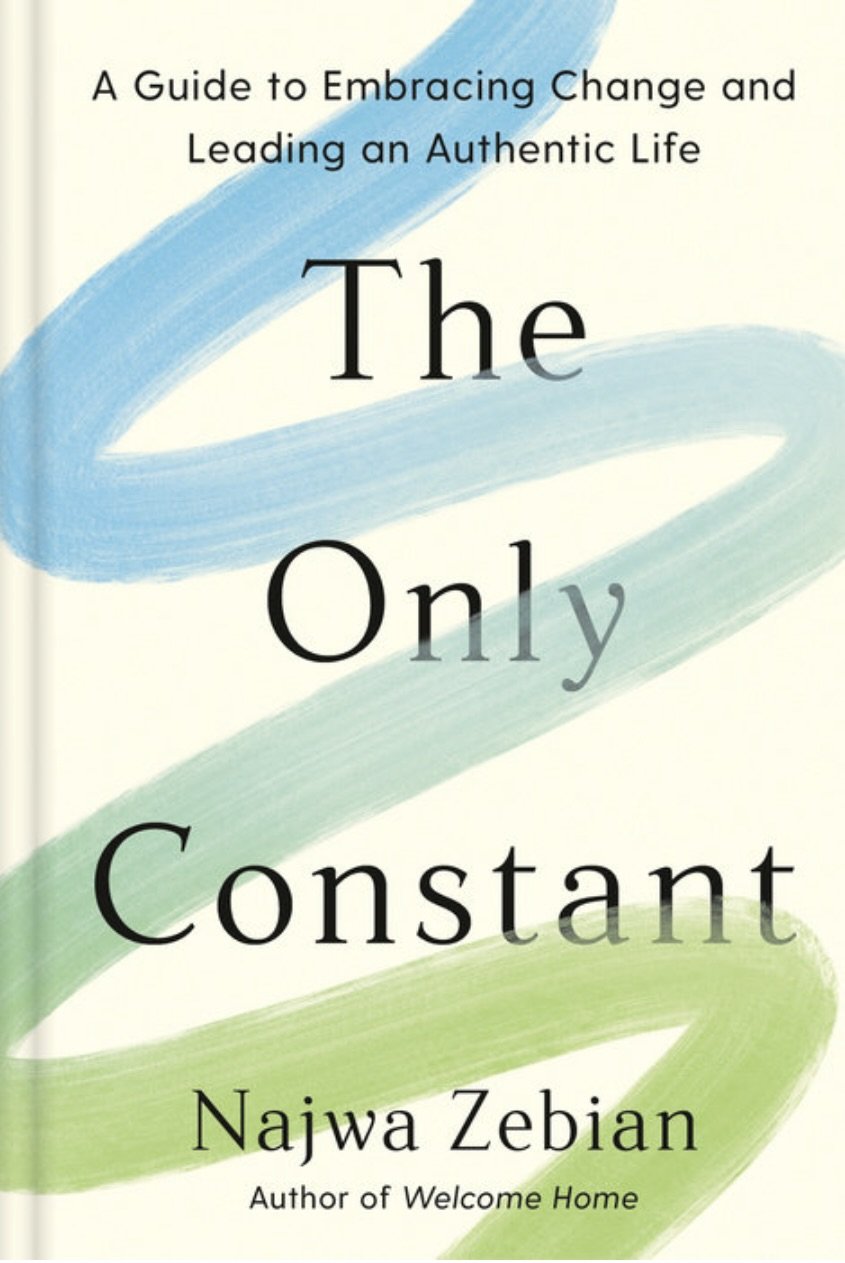
You can become the change driver of your own life. The celebrated poet, educator, and author of Welcome Home shows you how in this practical, wise, and tender guide to all of life’s changes.
“Change is hard—but Najwa shows you what’s on the other side, and she’s the one you want to lead you through it.”—Melissa Urban, New York Times bestselling author of The Book of Boundaries
In The Only Constant, Najwa Zebian guides you through the changes we must make and those we must endure in life, offering support, stabilizing practices, and step-by-step guidance to make it through the uncertainty. With timeless wisdom, Najwa shares stories of change from her own life, including the bonds to the past she needed to break so that she could live more honestly, the loss of a loved one, and accepting the changes required to manage chronic illness.
She also guides you through changes like:
• The end of a romantic relationship or friendship
• Setting boundaries with a friend or family member
• Changing your educational and career path
• Grieving the death of a loved one
• Breaking trauma bonds
• Venturing outside of your survival mode
• Living an authentic life
• Practicing radical acceptance
A highly practical guide to unfamiliar terrain, The Only Constant teaches that the purpose of change is to be true to yourself. Zebian simplifies change, teaches us to accept ourselves as we are now, and helps us focus on the necessity and unexpected beauty of those messy transitional times. And she guides you through it so that you can not only reach the better life that awaits you on the other side, but also so that you can take the wheel and become the driver of change in your own life.
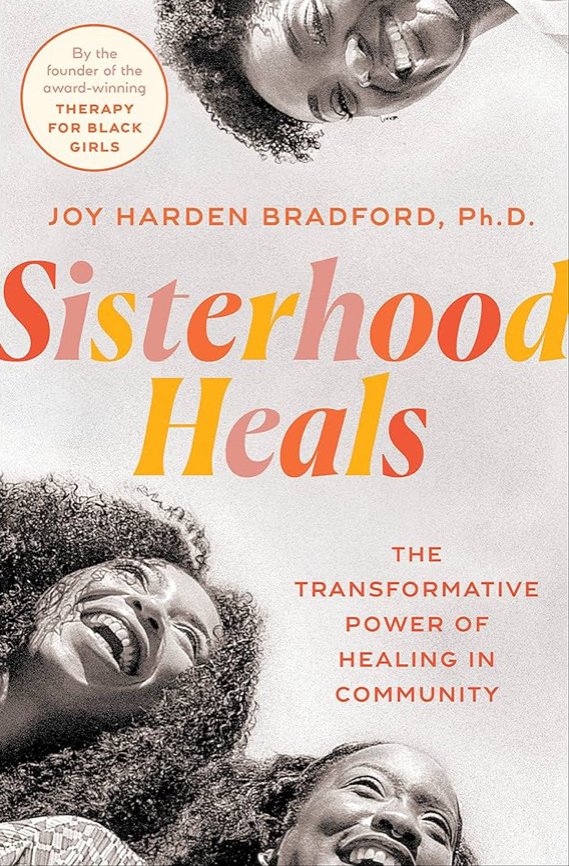
From the licensed clinical psychologist behind the award-winning podcast Therapy for Black Girls comes “a roadmap for personal growth and improved connections with others, ultimately leading to a more fulfilling and joyful life” (Nedra Glover Tawwab, New York Times bestselling author of Set Boundaries, Find Peace and Drama Free)
“Inspiring, wise, and thoughtful, this book is a gift for anyone looking to deepen their friendships.”—Luvvie Ajayi Jones, New York Times bestselling author of Professional Troublemaker
Sisterhood is that sacred space where all the masks that are worn for the world fall off. It’s the place where you lay down your load, refill your cup, and laugh until your belly aches. Our sister circles literally prolong our lives. However, building and keeping healthy friendships take work. How must these friendships evolve as we age? What practices can we put in place? Can they be the key to unlocking a more fulfilled existence? The answer is yes.
Dr. Joy Harden Bradford has been doing the work to help Black women heal together for more than twenty years. In a sisterhood community with more than half a million members, she’s the go-to therapist for Black women looking to prioritize their mental health and become the best possible versions of themselves. Now she’s sharing all she’s learned using the tenets of psychology and group therapy to help us foster relationships that are not only positive, but transformative.
In Sisterhood Heals you will
• discover the ways in which your present-day relationships with Black women have been influenced by your past
• identify the recurring role you play in your friend group and how it influences your relationships
• learn new strategies to grow and sustain healthy, nurturing friendships as well as how to rebuild after a rupture
Dr. Joy brings the warmth, wisdom, empathy, and levity found in our girlfriends to these pages, and reminds us that during difficult times sisterhood is often a lifeline with the power to help us experience fuller, more satisfying lives.

Stop by our Gift Shop!
